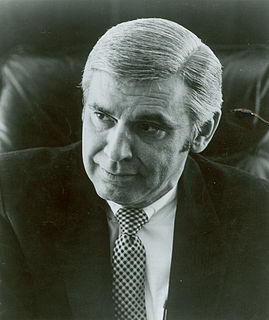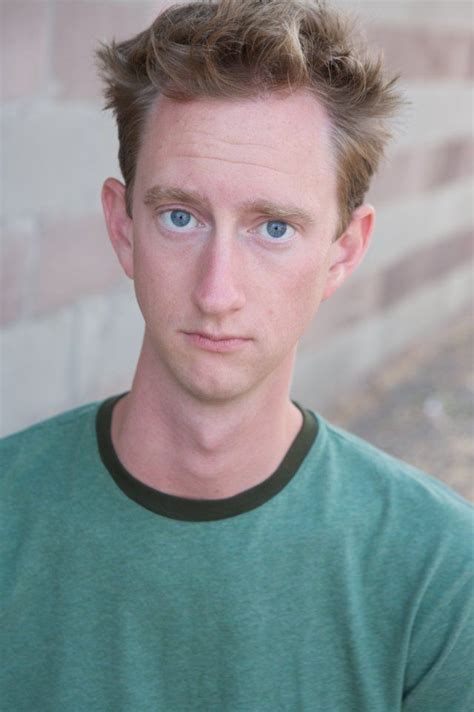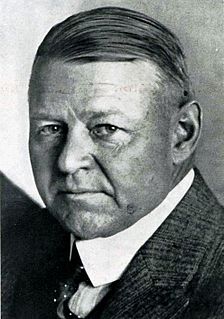A Quote by Leo Ryan
Representative Leo J. Ryan understood the manipulation phenomena people were describing to him and he lost his life in a Guyanese jungle investigating how Jim Jones "bent minds.
Quote Topics
Related Quotes
As his colleagues have noted in their tribute to him, it was typical of Leo Ryan's concern for his constituents that he would investigate personally the rumors of mistreatment in Jonestown that reportedly affected so many from his district. Leo Ryan is the 88th recipient of a Congressional Gold Medal and only the 4th Member of Congress to receive this high honor from his colleagues.
Jim Jones wanted his people to believe the establishment was trying to kill him because whites were threatened by his message of racial equality. He used the incident to close ranks and turn anyone who disagreed with him into a menace. He warned his congregation that a would be assassin might try to infiltrate their church, so they had to prove their loyalty to him by never questioning his orders. Dissenters became traitors.
As kids, my brother David and I longed for acceptance. We were desperate to belong. We would have been thrilled to see the pews of Jones's church in San Francisco, with blacks and whites sitting side by side. And Jim Jones's sermons on social justice and equality would have had much greater appeal to us than the soporific morality tales we were accustomed to hearing. Jones promised real racial equality. He promised to create a truly equal community in the jungle in Guyana.
I think the folks who joined Jim Jones's church did so because they truly believed in his stated ideals of racial equality and social justice. That's why he was able to convince one thousand of them to immigrate to the jungle of Guyana. Although history has stigmatized Jonestown residents as the people who "drank the Kool-aid," I'd argue that they were noble idealists. Furthermore, they were murdered. They didn't willingly drink poison - they were forced to do so at gunpoint. They sought the ideal, only to have their leader horribly betray them.
My parents subscribed to both Time and Newsweek and in 1978, I remember the covers of both that December were of the bodies in the jungle. The fact that many of the people who drank the cyanide - as well as Jim Jones himself - were originally from Indiana, that stayed with me. I wanted to know why they did such a baffling, horrendous thing, why they would kill their children.
To be honest, I didn't want to get inside Jones's head. Every time I wrote about Jim Jones I practically had to tie myself to my chair to force myself to do it; I hated him so much. He wanted to go down in history and he did. He's had hundreds of books and articles written about him. I was much more interested in the stories of the rank-and-file members of Peoples Temple, what drew them to Jones, and what they did once they were trapped in Jonestown and realized Jones was intent on killing them.
In California, Jim Jones even staged a shooting of himself. The lesson of this was two-fold. One, that he was a god - he could heal himself. He had these magic powers. A large segment of his congregation came from a Pentecostal tradition that believed in faith healing and already believed Jones had the power to cure others. And two, the "shooting" made him seem important. Civil rights leaders were being gunned down - MLK, Jr., Medgar Evers, Malcolm X - and he longed to be considered as heroic and important as they were.
Piper went a little crazy. She cried out with relief and dove straight into the water. What was she thinking? She didn't take a rope or a life vest or anything. But at the moment, she was just so happy that she paddled over to Leo and kissed him on the cheek, which kind of surprised him. "Miss me?" Leo laughed. Piper was suddenly furious. "Where were you? How are you guys alive?" "Long story," he said. A picnic basket bobbed to the surface next to him. "Want a brownie?
I'm stupid," Leo mumbled. "Pi would expand outward, because it's infinite." He reversed the order of the numbers, starting in the center and working toward the edge. When he aligned the last ring, something inside the sphere clicked. The door swung open. Leo beamed at his friends. "That, good people, is how we do things in Leo World. Come on in!" "I hate Leo World," Frank muttered. Hazel laughed.
Like most men, Jimmy Jim was neither all good nor all bad. It is just that when he was bad, gentler people saw in him a disturbing fury. People, a lot them, don't understand fury. They understand anger and even hatred, but fury is one of those old words that have gone out of style. Jimmy Jim Bundrum understood it. It rode his shoulder like a parrot.
People ask me what it was like working with Jim Carrey. Well, I never really saw too much of him. I would talk to him on the set, but I was looking at a Grinch facade. It was his voice and all, but... Jim is amazing to watch in front of the camera. I learned a lot from him. He was also always very nice and generous to me.
Average Jones had come by his nickname inevitably. His parents had foredoomed him to it when they furnished him with the initials A. V. R. E. as preface to his birthright of J for Jones. His character apparently justified the chance concomitance. He was, so to speak, a composite photograph of any thousand well-conditioned, clean-living Americans between the ages of twenty-five and thirty.
Jim Jones used highly-edited videos and photos of Jonestown, showing what a supposed Eden it was. People were interviewed smiling and working in the fields, telling other church members to hurry down and join them. These interviews were staged; the people were told exactly what to say. Truth is, Jonestown never even produced enough food to feed everyone, and people were going hungry.


























